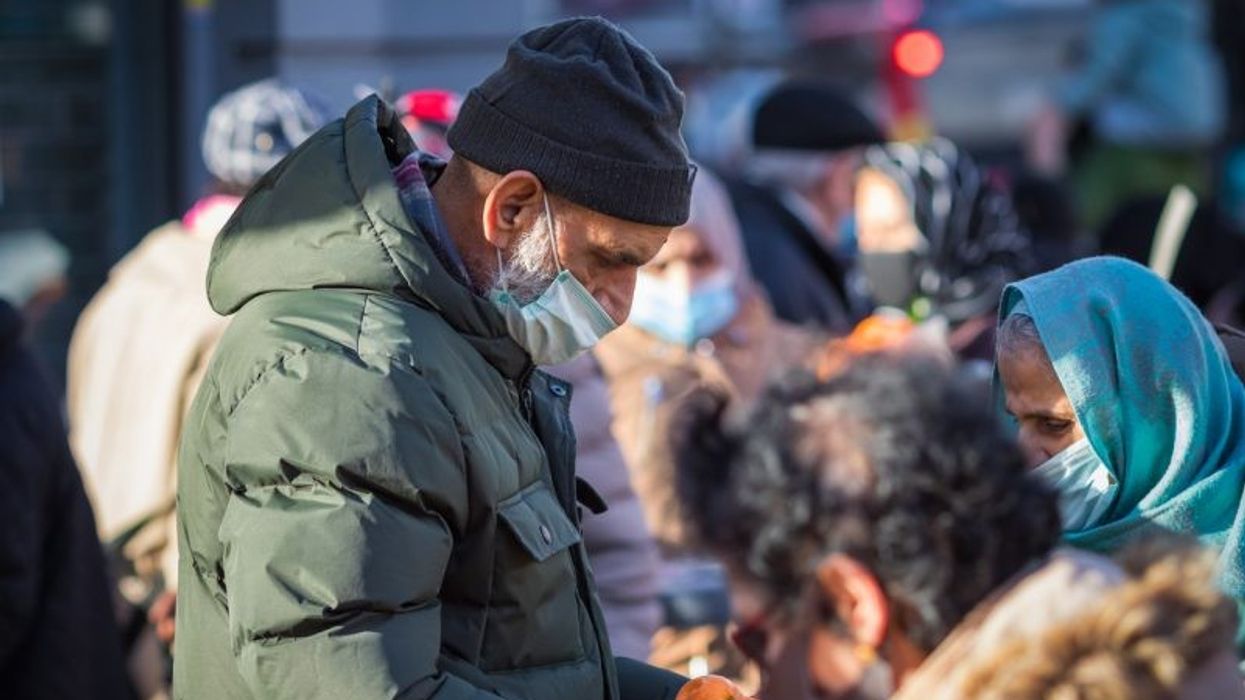THE excess covid-19 mortality among most ethnic minority groups in the UK has fallen over time compared with the White British group, according to a report in the British Medical Journal (BMJ).
During the start of the pandemic, mortality was highest in the black African group but in subsequent waves, it was highest in Bangladeshi and Pakistani groups, the report titled 'Ethnic differences in covid-19 death rates' added.
Ethnic differences lessen substantially when factors such as geography, deprivation, occupation, household composition, living arrangements, and pre-existing health conditions are taken into account, the BMJ report said.
The latest analysis by the Office for National Statistics (ONS) has revealed the complex relationship between ethnicity and the risk of dying from the virus and also highlighted the need for ongoing monitoring.
Also Read | NHS observatory to study impact of long Covid in minorities
The report added that the ONS is now examining the effect of vaccination status.

"In the most recent wave to December 2021, only Pakistani men and Bangladeshi men and women experienced excess mortality compared with the White British group. These groups are more likely to live in large households with multigenerational families, which could increase the risk of infection and contribute to their higher risk of death," the BMJ report said.
"Since its introduction in December 2020, the vaccination programme has helped to reduce excess deaths from covid-19 in most ethnic minority groups, especially people identifying as Black Caribbean and Black African."
The risk of death from covid-19 is more than 90 per cent lower for people who have had a third vaccination dose than for unvaccinated people. However, vaccine uptake remains lowest in ethnic groups-only 34 per cent of Black Caribbean, 38 per cent of Black African, 38 per cent of Pakistani, and 46 per cent of Bangladeshi adults have had three vaccine doses compared with 68 per cent of White British adults, the report revealed.
The BMJ report said: "About half of the pregnant women in the UK who died from complications of covid-19 between June 2020 and March 2021 were from Asian and Black ethnic groups. Even before the pandemic, maternal death rates among these groups were respectively double and quadruple those in the White British group.
"Geography and socioeconomic factors such as deprivation and occupation drive much of the excess covid-19 deaths seen in all ethnic groups. Also, covid-19 mortality in the most deprived areas of England is more than double that in the least deprived areas and the pandemic has notably exacerbated pre-existing health inequalities associated with deprivation."
The ONS analysis also highlighted the need for preventive measures to reduce the much higher burden of morbidity and mortality from some chronic diseases, including cardiovascular disease and diabetes, among Asian and Black communities.
The BMJ report pointed out the need to tackle the socioeconomic inequalities driving the disproportionate impact of the pandemic and health inequalities in both ethnic minority groups and deprived groups of all ethnicities.





